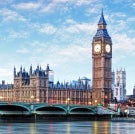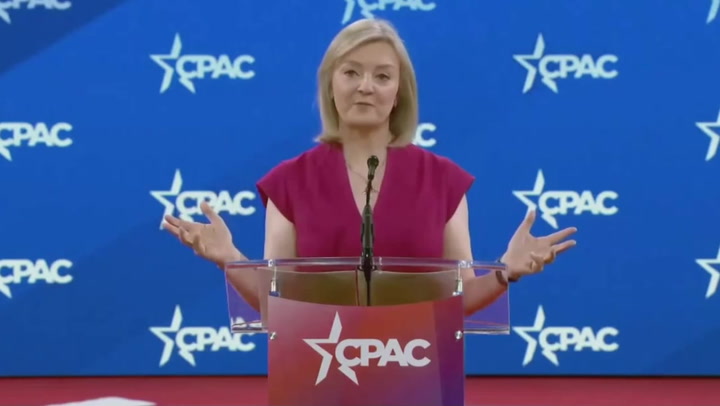The French president has said he will dissolve parliament and call a snap election after his party suffered a crushing defeat in elections for the European parliament as surging far-right parties dealt blows across the bloc.
Addressing the nation from the Elysee presidential palace on Sunday, Emmanuel Macron announced the dissolution of the National Assembly and called for legislative elections to be held on 20 June and 7 July.
In a hugely politically risky move, he said: “I’ve decided to give you back the choice of our parliamentary future through the vote. I am therefore dissolving the National Assembly.”
Mr Macron said the decision was “serious” but showed his “confidence in our democracy, in letting the sovereign people have their say”. “In the next few days I’ll be saying what I think is the right direction for the nation. I’ve heard your message, your concerns, and I won’t leave them unanswered,” the president said.
Voting to elect the European Union’s regional lawmakers for the next five-year term ended at 2100 GMT on Sunday after the last remaining polls closed in Italy. France is electing 81 members of the European parliament, which has 720 seats in total.
It marked the conclusion of a marathon election spanning four days across 27 bloc member countries involving some 450 million people. With official results expected any moment, initial projections provided by the European Union indicate the rise of the far right was even more astonishing than many analysts predicted.
First projected results from the French opinion poll institutes put the far-right National Rally party well ahead in France, defeating Mr Macron’s pro-European centrists, with far-right leader Marine Le Pen welcoming the call for new parliamentary elections.
“We’re ready to turn the country around, ready to defend the interests of the French, ready to put an end to mass immigration,” Ms Le Pen said on Sunday, echoing the rallying cry of so many far-right leaders in other countries who were celebrating substantial wins.
Led by 28-year-old Jordan Bardella, the National Rally won around 32 per cent of the vote in Sunday’s vote, more than double Mr Macron’s Renaissance movement, which reached 15 per cent, according to the first exit polls.
Mr Bardella told supporters: “Emmanuel Macron is a weakened president tonight. The unprecedented gap between the presidential majority and the leading opposition party tonight reflects a stinging disavowal and rejection of the president and his government.”
Far-right parties also dealt a stunning defeat to another of the European Union’s most important leaders, German chancellor Olaf Scholz.
Mr Scholz suffered such an ignominious fate, falling to 14 per cent, that his long-established Social Democratic party fell behind the extreme-right Alternative for Germany (AfD), which surged into second place.
Projections indicated that the AfD overcame a string of scandals involving its top candidate to rise to 16.5 per cent, up from 11 per cent in 2019. In comparison, the combined result for the three parties in the German governing coalition barely topped 30 per cent. The centre-right Christian Democratic bloc of EU Commission president Ursula von der Leyen dominated, with almost 30 per cent.
Overall, across the EU, two mainstream and pro-European groups, the Christian Democrats and the Socialists, remained the dominant forces. The gains of the far right came at the expense of the Greens, who were expected to lose about 20 seats and fall back to sixth position in the legislature. Mr Macron’s pro-business Renew group also lost big.
Germany, traditionally a stronghold for environmentalists, exemplified the humbling of the Greens, who were predicted to fall from 20 per cent to 12 per cent. With further losses expected in France and elsewhere, the defeat of the Greens could well have an impact on the EU’s overall climate change policies, still the most progressive across the globe.
As well as in France, the hard right, which focused its campaign on migration and crime, was expected to make significant gains in Italy, where premier Giorgia Meloni was tipped to consolidate her power.
For decades, the European Union, which has its roots in the defeat of Nazi Germany and fascist Italy, confined the hard right to the political fringes. With its strong showing in these elections, the far right could now become a major player in policies ranging from migration to security and climate.
That could make it harder for the EU to pass legislation, and decision-making could at times be paralysed in the world’s biggest trading bloc.
Bucking the trend was former EU leader and current Polish prime minister Donald Tusk, who overcame Law and Justice, the national conservative party that governed Poland from 2015-23 and drove it ever further to the right. A poll showed Mr Tusk’s party won with 38 per cent, compared to 34 per cent for his bitter nemesis.
EU lawmakers, who serve a five-year term in the 720-seat parliament, have a say in issues from financial rules to climate and agriculture policy. They approve the EU budget, which bankrolls priorities including infrastructure projects, farm subsidies and aid delivered to Ukraine. And they hold a veto over appointments to the powerful EU commission.
Since the last EU election in 2019, populist or far-right parties now lead governments in three nations – Hungary, Slovakia and Italy – and are part of ruling coalitions in others including Sweden, Finland and, soon, the Netherlands. Polls give the populists an advantage in France, Belgium, Austria and Italy.
Source: independent.co.uk



